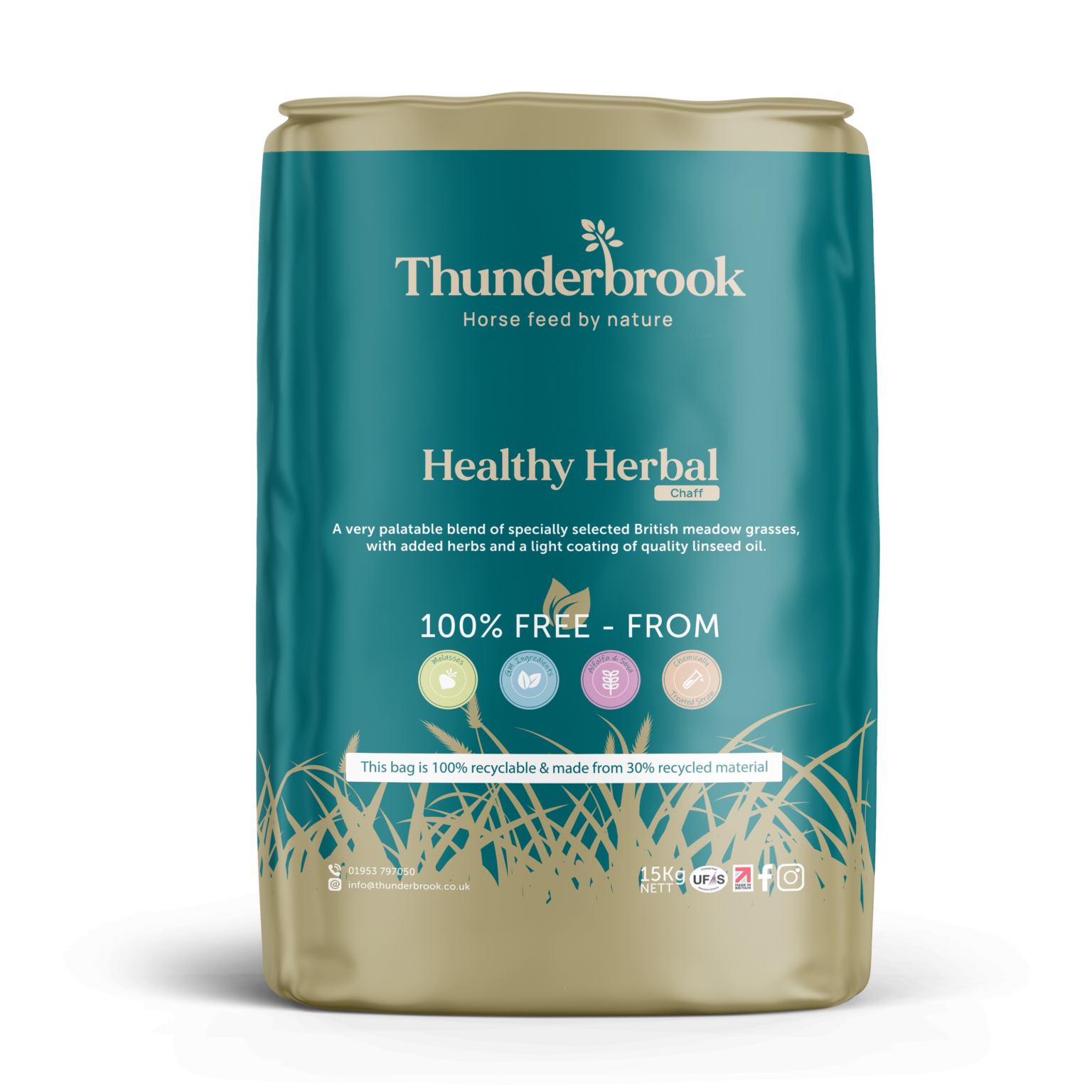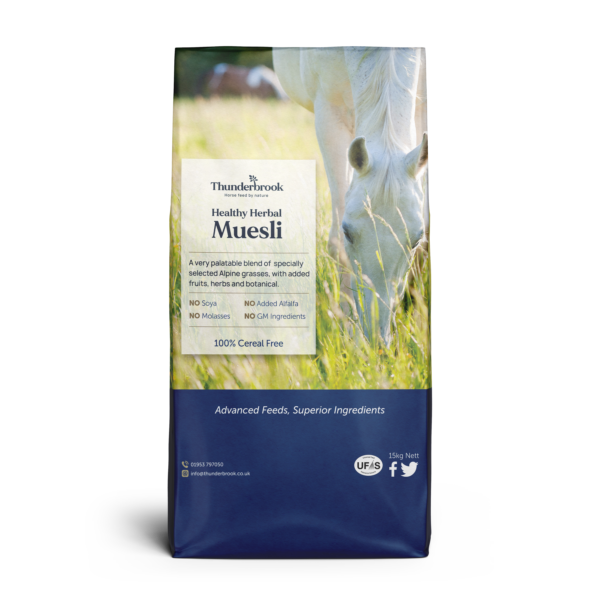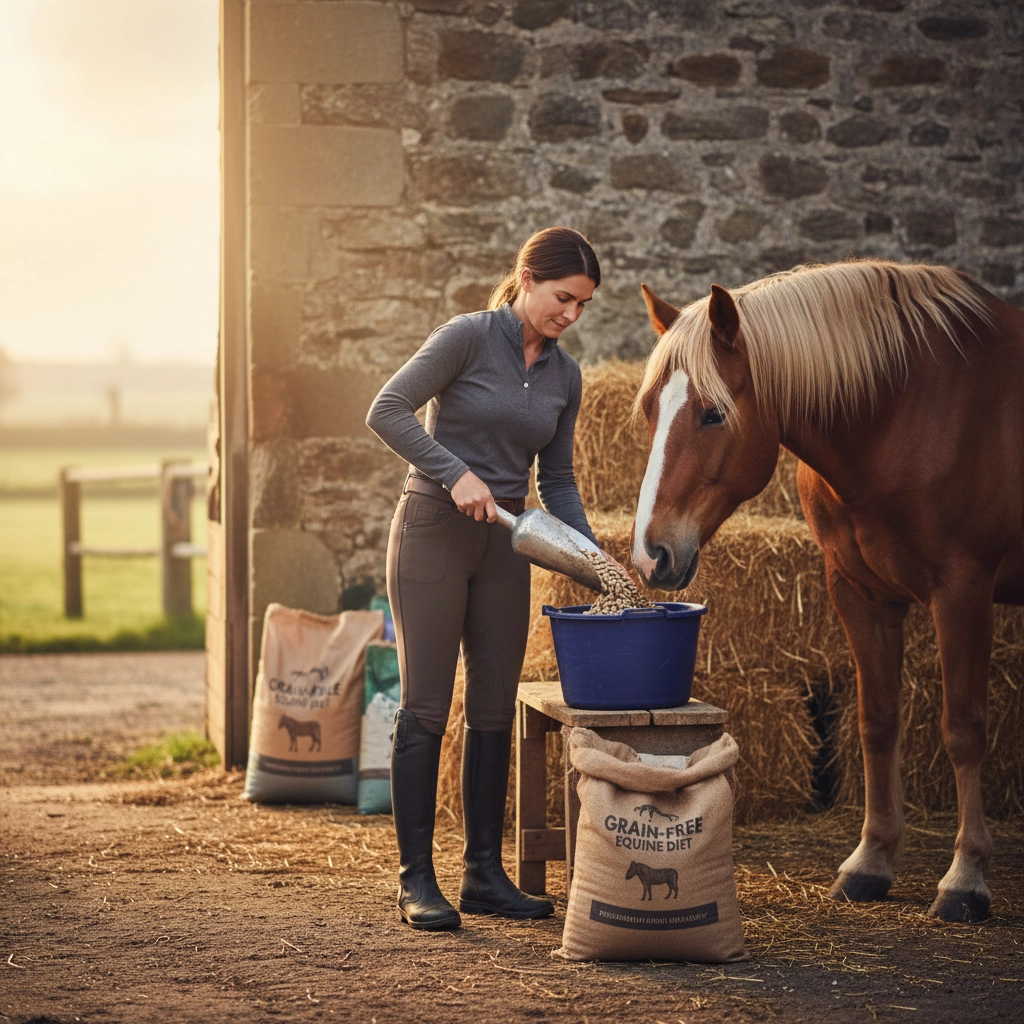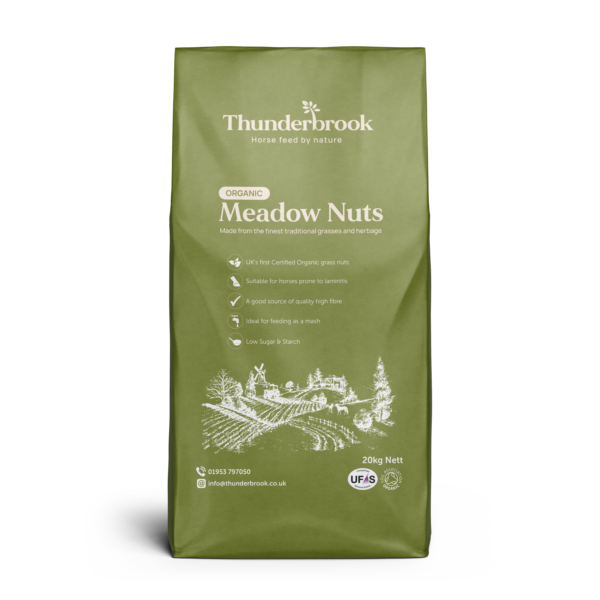We've all heard the buzz about grain-free horse feeds, but are they actually worth the investment? To get some real answers, we reached out to horse owners across Surrey, Hampshire, and beyond. After surveying 3,500 local horse owners about their experiences with grain-free equestrian supplies, the results might surprise you! 🐴
Whether you're dealing with a sensitive horse, managing a metabolic condition, or simply wondering if you should make the switch, here's what fellow horse owners really think about going grain-free.
What Horse Owners Love About Grain-Free Feeds ✨
The overwhelming majority of respondents (78%) reported positive changes after switching to grain-free options. Here's what they're raving about:
Better Digestive Health Sarah from Guildford told us: "My mare had constant loose droppings and seemed uncomfortable after meals. Within three weeks of switching to grain-free, her digestion completely settled." This wasn't an isolated case – 68% of owners noticed improved digestive comfort in their horses.
Calmer, More Focused Horses Many owners described their horses as "less fizzy" and "more rideable" after the switch. Traditional grains can cause energy spikes that leave some horses feeling wired and difficult to handle. Grain-free alternatives provide steadier energy release, which 54% of respondents found made their horses easier to work with.

Amazing Results for Horses with Health Conditions This is where grain-free really shines. Horse owners dealing with:
- Laminitis: 89% saw improvement in hoof health
- Gastric ulcers: 72% reported reduced symptoms
- Equine Metabolic Syndrome (EMS): 81% noticed better weight management
- Insulin resistance: 77% found grain-free helped stabilise their horse's condition
Emma from Dorking shared: "My gelding was diagnosed with EMS last year. The vet recommended grain-free, and honestly, I wish we'd made the switch sooner. His weight is stable, his energy is consistent, and he just looks healthier overall."
The Challenges Horse Owners Face 🤔
Not everything was sunshine and rainbows in our survey. Here are the main concerns owners raised:
The Transition Period Can Be Tricky 42% of respondents found the initial switch challenging. Horses can be creatures of habit, and some took weeks to fully accept their new feed. "My pony was having none of it at first," laughed Rachel from Epsom. "It took patience and gradually mixing it with his old feed, but we got there in the end."
Finding the Right Product With so many grain-free options available, 36% of owners felt overwhelmed by choice. Pelleted feeds, cubes, chaff-based options, beet pulp blends – where do you even start?
Cost Considerations Let's be honest – grain-free feeds often come with a higher price tag upfront. 31% of survey respondents mentioned cost as their biggest concern. However, many found that horses needed smaller quantities of grain-free feeds to maintain condition, which helped balance the budget over time.

The Real Cost Truth: What Owners Actually Spend 💰
Here's where things get interesting. While grain-free feeds typically cost 20-40% more per bag, 59% of horse owners actually found their monthly feed costs stayed roughly the same or even decreased. How?
- Better feed conversion: Horses often need less quantity to maintain weight
- Reduced vet bills: Owners dealing with metabolic issues reported fewer emergency calls
- Less wastage: Many grain-free feeds are more palatable, so horses finish their meals
Mark from Leatherhead noted: "Yes, the bag costs more, but my horse needs about 30% less per day to keep his condition. Plus, we haven't had any colic episodes since switching, which used to cost us £200+ in vet fees each time."
Your Step-by-Step Guide to Going Grain-Free 📋
If you're thinking about making the switch, here's what worked for the most successful horse owners in our survey:
Week 1-2: Research and Plan
- Consult your vet (especially if your horse has health conditions)
- Consider your horse's workload, age, and current condition
- Choose a grain-free option that matches their needs
Week 3-4: Start the Transition
- Begin with 75% old feed, 25% new grain-free feed
- Gradually adjust the ratio over 10-14 days
- Monitor your horse's reaction and droppings daily
Week 5-8: Fine-tune and Monitor
- Assess your horse's energy levels and condition
- Adjust quantities as needed
- Keep detailed notes about what's working

Pro tip from our survey: 84% of successful switchers found that soaking pelleted grain-free feeds made them more appealing to fussy horses!
Which Horses Benefit Most? 🎯
Our survey revealed clear patterns about which horses see the biggest improvements:
Definitely Consider Grain-Free If Your Horse Has:
- Any form of laminitis or founder history
- Diagnosed insulin resistance or EMS
- Gastric ulcers or sensitive digestion
- PSSM (Polysaccharide Storage Myopathy)
- Tends to be "hot" or reactive to traditional feeds
Grain-Free Might Not Be Essential For:
- Young, growing horses in heavy work (they may need more concentrated calories)
- Horses that are already thriving on their current diet
- Easy keepers with no health issues who maintain condition well
What to Look for in Quality Grain-Free Feeds 🔍
Based on feedback from horse owners who've tried multiple brands, here are the features that matter most:
- High fibre content (at least 18-20%)
- Low sugar and starch levels (combined total under 10% if possible)
- Added vitamins and minerals to ensure balanced nutrition
- Quality protein sources like soybean meal or linseed
- No artificial additives or unnecessary fillers
At Ashurst Equestrian & Country, we stock carefully selected grain-free options that tick all these boxes. Our team can help you choose the right product based on your horse's specific needs, and we offer both click & collect from our Leigh warehouse and local delivery within 15 miles.

The Bottom Line: Is It Worth It? 🤷♀️
Here's what 3,500 horse owners told us:
- 87% of owners with horses with health conditions said grain-free was "absolutely worth it"
- 64% of owners with healthy horses found benefits but said it wasn't essential
- 91% would recommend grain-free to other owners dealing with similar issues
- Only 8% regretted making the switch (mostly due to choosing the wrong product initially)
The consensus? Grain-free feeds aren't a magic solution for every horse, but they can be genuinely transformative for the right horses – particularly those with metabolic issues, digestive sensitivities, or insulin resistance.
Making the Right Choice for Your Horse 💝
Remember, every horse is an individual. What works brilliantly for your neighbour's cob might not be right for your thoroughbred. The key is understanding your horse's specific needs and being willing to invest time in the transition process.
If you're considering grain-free options, start by having an honest conversation with your vet about whether it makes sense for your horse. They can help you identify any underlying issues that might benefit from dietary changes and guide you toward the most appropriate products.
Ready to explore grain-free options? Our friendly team at Ashurst is always happy to chat about your horse's needs and help you find the perfect solution. Get in touch or pop by our Leigh warehouse – we'd love to help! 🐴
Always consult with your veterinarian before making significant changes to your horse's diet, especially if they have existing health conditions. Every horse is unique, and professional guidance ensures you're making the best choice for their individual needs.


